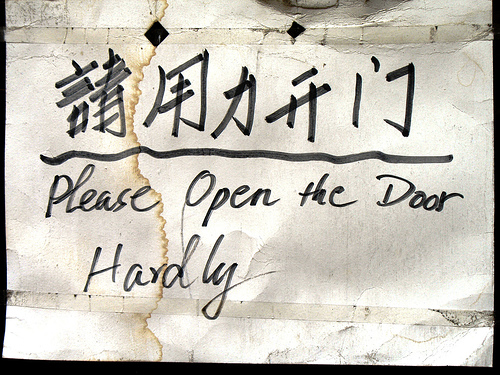If you are a hotel owner or manager or are intimately involved in the accommodation business for tourists and visitors, sometime or another you will be presented with the problem of letting your guests know something about the place they are staying or intend staying in. That’s fine when all those guests speak the same language as you, but increasingly that cosy situation is changing. If you run a hotel on the Queensland Coast for instance in Australia, there are likely to be as many visitors from Asia as there are from anywhere else and they are unlikely to be very fluent in English. The same situation could be repeated all over the world. The world’s population is on the move and they want to be informed wherever they go in the way that suits them!
In practical terms, it means that whatever information you have available in your hotel – from simple ways to find your way around to times of restaurant opening and house rules as well as tourist literature should be translated into the languages of at least the most common visitors you expect to see. No translation at all sends a message to these non English language speaking guests that they are not welcome – or at least will not find that this accommodation you provide is a comfortable home away from home for them. To get your rooms full each night with local and overseas visitors you may have to splash out on document translation services.
It’s not just a matter of finding the cheapest and easiest translation, either. Today’s globetrotters, whether they come from Sweden, Korea or Peru, are increasingly savvy about leaving reviews of the places they have stayed. Your unwelcoming lack of signs in anything other than English (or whatever your own language is) badly translated pamphlets or menus will turn up advertised as such all over the internet and you may be shunned as a result.
There are the more obvious reasons why a professional document translation service should be used for displayed information. If there was a fire or other emergency in the establishment, guests need to know exactly what to do and where they should go. It’s not the time and place for them to get the instructions wrong and end up hurt. There may be information which is needed to run an air conditioner or heater, the TV or DVD, a shower or toilet. Badly translated information could end up with something getting damaged and an embarrassing encounter between hotel manager and guest which need not have happened.



